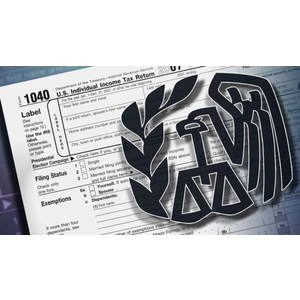When the ball dropped in Times Square at midnight on New Year’s Eve, it did more than signal the start of another year. It also officially closed the books on several significant tax breaks for individuals and small business owners. Unless these provisions are resurrected by a bipartisan Congress – no sure bet – they won’t be available in 2014.
Appropriately enough, here are 14 top tax breaks that expired on January 1, 2014, although taxpayers may still benefit from them on ’13 returns.
- Tuition and fees deduction: In lieu of a higher education tax credit, parents of children in college may deduct qualified tuition and fees expenses. The deduction of either $2,000 or $4,000, which was phased out for upper-income taxpayers, is claimed “above the line,” thereby reducing adjusted gross income (AGI) for other purposes.
- State sales tax: A taxpayer can bypass a deduction for state and local income tax in 2013 by choosing to deduct state and local sales tax if that produces a bigger write-off. This tax return option is especially valuable to residents of states with no income tax or relatively low rates.
- Charitable rollovers from IRAs: An individual age 70 ½ or over could transfer to $100,000 directly from an IRA to a charity in 2013 without paying any income tax on the payout. On the flip side, the transfer doesn’t qualify for a charitable deduction, although it counts as a “required minimum distribution” (RMD). Taxpayers age 70 ½ or over must take annual RMDs from their IRAs.
- Qualified small business stock: Under this provision, investors in “qualified small business stock” (QSBS) are allowed to exclude 100% of the gain from the sale of QSBS acquired before 2014. The required holding period is five years. After 2013, the exclusion is limited to 50% of the gain.
- Mortgage debt cancellation: Generally, forgiveness or cancellation of a debt results in taxable income, but an exception was previously carved out for homeowners with a mortgage debt canceled due to a foreclosure, short sale or mortgage restructuring. This tax exclusion is only allowed for forgiveness on a debt of up to $2 million on a principal residence.
- Mortgage insurance premiums: Also, a homeowner can deduct mortgage insurance premiums paid for a qualified residence (i.e., a principal residence or second home). This writeoff is phased out for an AGI between $100,000 and $110,000.
- Mass transit benefits: For 2013, the tax-free exclusion for mass transit benefits is synced with the benefits for parking allowances at $245 a month. But the tax-free benefit for mass transit benefits drops to $130 per month in 2014, along with the maximum exclusion allowed for commuter highway vehicles.
- Residential energy credit: In the latest reincarnation of this tax break, a homeowner could claim a credit of 10% of the cost of energy-saving improvements made in 2013, up to a lifetime maximum of $500. It is uncertain whether Congress will revive this tax benefit once again.
- Section 179 deductions: A business can currently deduct up to $500,000 of qualified property placed in service in 2013, although the maximum deduction is reduced if a $2 million threshold is exceeded. Absent any change, the maximum deduction is scheduled to plummet to $25,000 in 2014 with just a $200,000 reduction threshold.
- Bonus depreciation: As icing on the cake, a business could claim a 50% bonus depreciation deduction for qualified property placed in service in 2013, in addition to any Section 179 deduction. Any remainder may be depreciated over the property’s useful life. With limited exceptions, bonus depreciation is gone after 2013.
- Fast depreciation writeoffs: A special provision allowed qualified leasehold improvements, qualified restaurant buildings and improvements, and qualified retail improvements to be depreciated over 15 years for property placed in service in 2013. For 2014, these assets will be depreciated over the usual 39-year period.
- Health coverage tax credit: To make health insurance more affordable, a tax credit for 72.5% of health insurance premiums is available to eligible individuals. However, the taxpayer must meet certain requirements, such as paying more than 50% of the premiums to a qualified plan.
- Conservation easements: An individual can deduct the value of an easement in property donated for charitable purposes. For 2013, the deduction is limited to 50% of AGI, but it is reduced to the usual figure of 30% of AGI in 2014.
- Classroom expenses: Certain educators – including teachers and principals of elementary schools – may deduct up to $250 of their out-of-pocket expenses above-the-line on a 2013 return. For 2014, such deductions are allowed only to the extent they qualify as employee business expenses.
This list is not all-inclusive, but features those tax breaks that are most likely to be significant to clients. Their ultimate fate won’t be determined until Congress returns from recess.
Thanks for reading CPA Practice Advisor!
Subscribe Already registered? Log In
Need more information? Read the FAQs
Tags: Benefits, Income Taxes, Sales Tax




